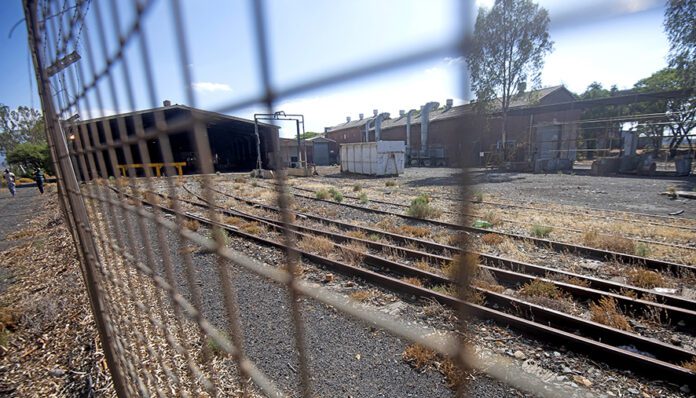Government and Justice
South Africa is not a failed state, the hard truth is that it is the ANC government that is failing the people of South Africa, and to reach the failed state categorisation may be a faraway possibility.
In an interview with television host, political analyst and economist, Moeletsi Mbeki this week reflected on a myriad of difficulties facing the country, including unresolvable power outages, but argued it was premature to argue that SA had already reached the tipping point to be described as a failed state.
Mbeki said Somalia – an east African country bordering Kenya and Ethiopia – was an example of a failed state, marked by indices of a failed state, which include, among others, as categorised by The Fund Peace: massive movement of
refugees and internally displaced persons requiring humanitarian assistance; severe economic decline; delegitimisation of the state by an assortment of communities and structures; severely weakened and undermined public service existing only in name; the undermining of rule of law and legality and increased rise of factionalised elites fighting hammer and tongs for access to scarce resources and state liquid assets.
A closer look at what is happening in SA already shows signs of few failures characteristic of what Somalia has become. Certainly, not at an alarming scale, but the tell-tale signs point in the direction.
The saving grace, though, is that politically South Africa has embraced, perhaps grudgingly, elements of constitutional democracy, with a thinly dispersed grumbling voices spread across the board, demanding the complete overhaul of the country’s supreme law, describing it as pre-eminently “elitist” or eurocentric.
Yet, the erosion of state legitimacy is slowly encroaching our politics. Those who have been entrusted with political power are causing an injustice to the citizenry. Certainly, the so-called “nine wasted years” were unjust, and did not have to happen, and must be condemned. The function of all governments is to serve society, with elected officials developing policies to enrich the lives of those who elected them to power.
The words we hear in high places that “we did not struggle to be poor” are eroded by the passage of time.
The statement is telling; it was mouthed, nearly 30 years ago, by one of the ANC luminaries at the onset of democracy in 1994.
What does it mean?
The words suggested the “struggle heroes and heroines” were more entitled to a better life – exceedingly better than those of voting masses.
The principle of being a steward of the vineyard has eluded our leaders, expunged from their political lexicon.
Former ANC spokesperson Smuts Ngonyama gave us the words that should have angered us. Instead, they egged on many comrades in the governing party to join the elitists’ bandwagon.
Shamefully, the evil spirit of “all animals being equal, but some more equal than others” took grip of former revolutionaries.
Chief justice Raymond Zondo reminded President Cyril Ramaphosa at his inquiry hearing nearly two years ago it would be impossible to imagine, as deputy president at the time of the so-called “nine wasted years”, he would not have been aware of unfolding malfeasance.
Zondo’s words visibly stunned the president; the adam’s apple moved uncomfortably as he made sense of the hard words.
But is South Africa a failing state? Mbeki thinks that time has not come. Will it arrive? We might never know.
References to the failures of the ANC-led government to deliver good to various communities; the failing state-owned enterprises including Eskom, Transnet, and Denel, are a function not of a state failure but more of a failing government, incapable to translate its economic, social, and other policies, to address social and economic needs of the citizenry.
We live in a constitutional democracy which mandates the government of the day to create an enabling environment for the economy to operate optimally and deliver the economic goods to sustain life and limb. But one by one the country’s infrastructures collapse. The rail infrastructure; the roads; the power grid; the potholes; and many more.
The economy is in bad shape; unemployment spikes and crime escalates. These are bad indices. They point to poor governance. If not attended to urgently, Somalia could, in the long end, visit us. Moeletsi Mbeki’s words are sobering.
Follow @SundayWorldZA on Twitter and @sundayworldza on Instagram, or like our Facebook Page, Sunday World, by clicking here for the latest breaking news in South Africa.



